How Often Do Las Vegas Water Heaters
Need to be Replaced?
Discover the key factors to consider when purchasing a new water heater in Las Vegas and learn about the signs that indicate the need for a replacement. Many homeowners tend to underestimate the significance of maintaining their water heaters, often realizing the problem only when they are unexpectedly left without hot water. To avoid inconveniences and potentially hazardous situations, it is crucial to prioritize the proper care of your water heater. In this comprehensive guide, our reliable plumber, specializing in water heater repair and replacement, will enlighten you on the telltale signs that suggest the need for a replacement. Additionally, we will explore essential considerations to keep in mind when selecting a new system. By delving into this valuable information, you will be equipped with the knowledge necessary to ensure an uninterrupted supply of hot water for your entire family.

How long do water heaters last?
Hot water heaters are essential for our daily routines as they provide the hot water necessary for showers, laundry, and dishwashing. However, the lifespan of these appliances can be affected by several factors. On average, a hot water heater typically lasts between 8 and 12 years.
If you opt for a tankless water heater, you can expect a longer lifespan compared to traditional units.
To ensure your hot water heater's longevity, it's crucial to avoid inadequate installation and neglecting maintenance. These actions can significantly reduce the lifespan of your water heater. Consistent upkeep and regular inspections are key to maintaining efficiency and prolonging the lifespan of your unit.
Remember that excessive daily usage and high levels of hard water can accelerate wear and tear on your water heater. This can compromise its long-term effectiveness. Therefore, it's important to be mindful of these factors and take necessary steps to mitigate their impact on your unit.

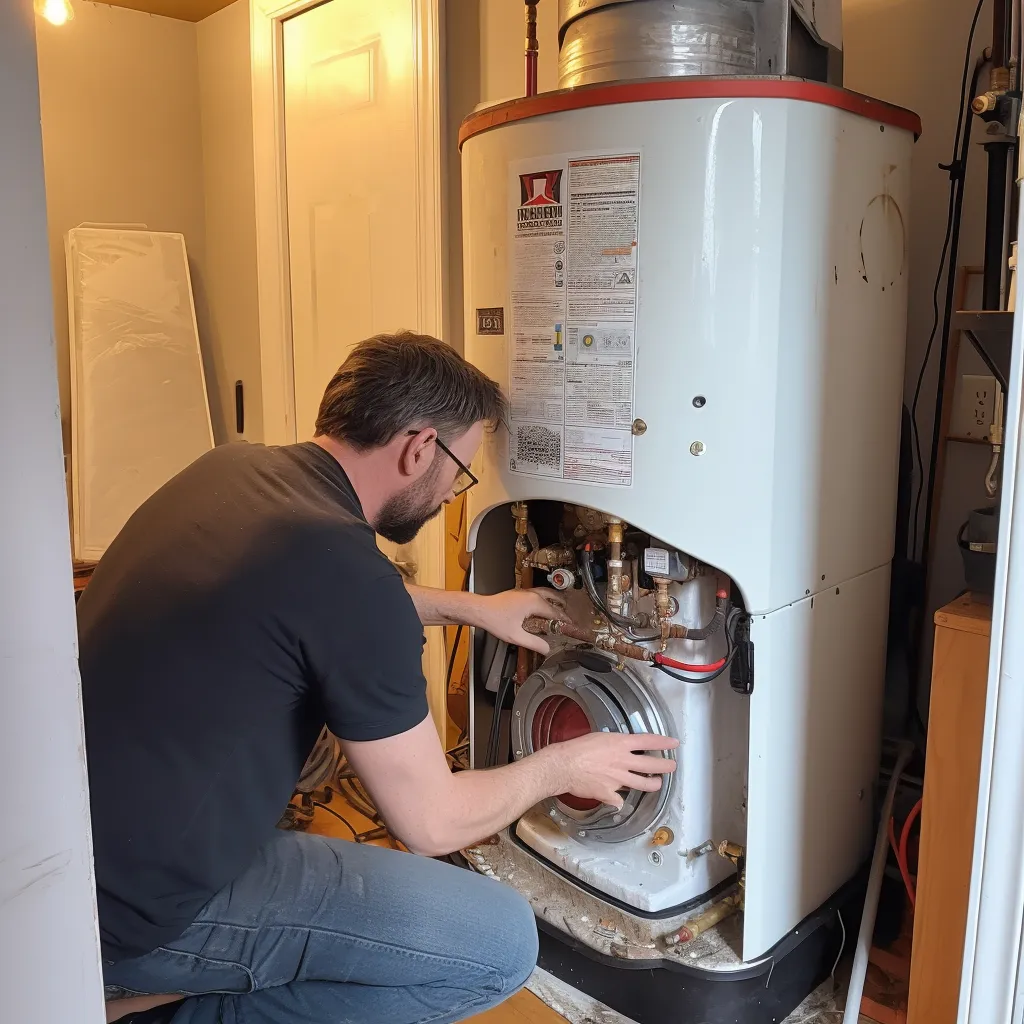
Do you have the budget for a new hot water heater?
When it comes to choosing the perfect water heater for your home and budget, the task can seem overwhelming due to the wide range of options available. However, by considering your budgetary limitations and the specific needs of your household, you can ensure that you make a well-informed decision. Several crucial factors should be taken into account, including energy efficiency, capacity, and compatibility with your lifestyle. While some models may have a higher initial price tag, it's important to recognize that they can lead to considerable energy savings in the long run. Therefore, it's wise to bear in mind that investing in a high-quality water heater can result in significant cost reductions over time. To make the best choice, be sure to allocate sufficient time to thoroughly assess all the available options before making your final decision.

Replacing a water heater is a big decision
When considering water heater replacement, it is crucial to approach the decision thoughtfully. Efficiency, age, and cost are significant factors to consider when choosing a new water heater. If your current water heater is more than ten years old or requires frequent repairs, it indicates the need to consider upgrading to a more efficient model. This upgrade not only enhances the performance of your water heater but also helps in lowering your utility bills.
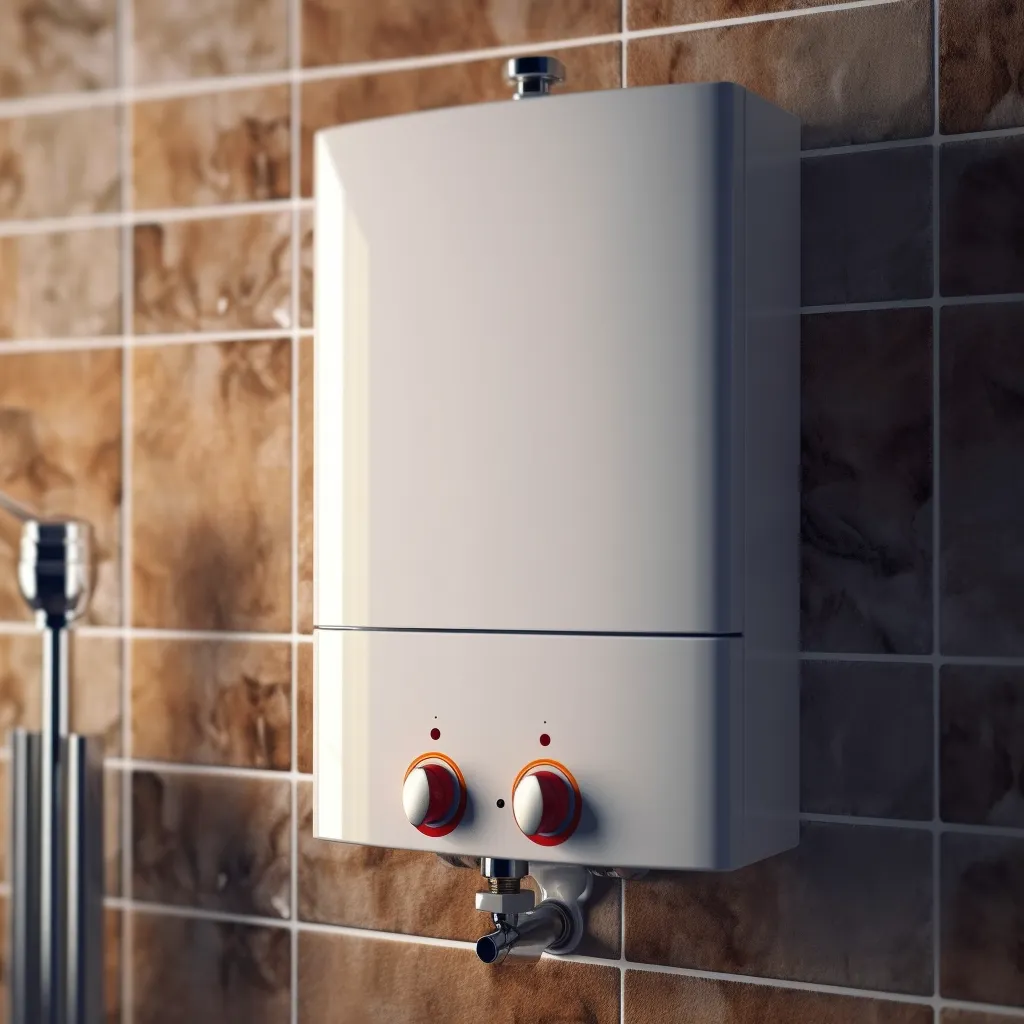
How to extend the lifespan
of your water heater
To ensure the longevity and effectiveness of your water heater, it is crucial to prioritize its maintenance rather than waiting for a complete breakdown. By implementing the following recommendations, you can optimize its performance and enjoy a durable water heating system:
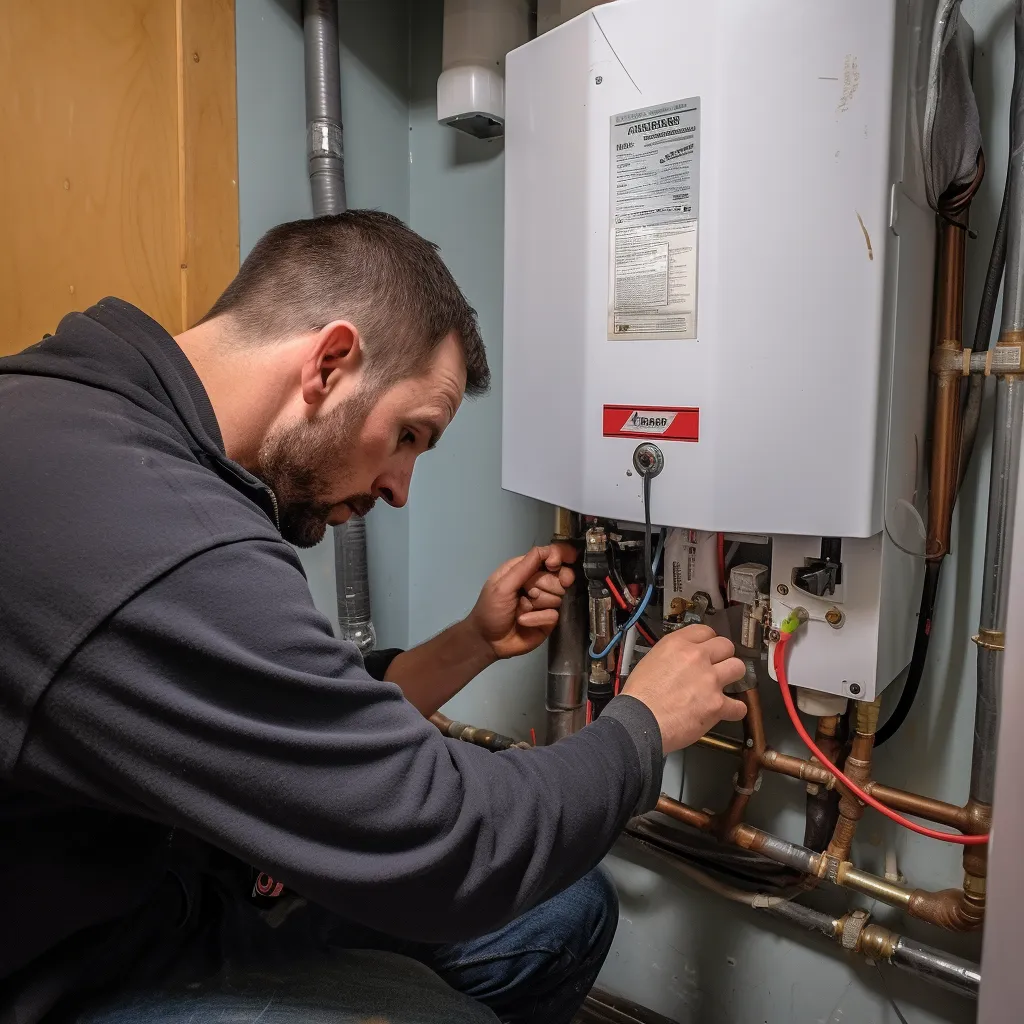
Regular Flushing: Prevent potential problems and enhance your water heater's efficiency by flushing it regularly. This simple task helps eliminate sediment buildup that can impede its performance.
Temperature and Pressure Relief Valve (TPR Valve) Check: Safeguard your water heater from potential hazards by regularly inspecting and testing the TPR valve. This critical safety feature is designed to release excessive pressure and prevent the tank from bursting.
Insulation: Improve energy efficiency and minimize heat loss by properly insulating both your water heater and its pipes. This simple step can significantly reduce energy consumption and ensure that your water stays hot for longer periods.
Check for Leaks: Be proactive in inspecting your water heater for any indications of leaks or dripping water. Even minor leaks can lead to substantial damage over time if left unaddressed. By promptly identifying and addressing leaks, you can prevent further complications and potential water damage.
Maintaining your water heater is crucial for maximizing its longevity. By implementing regular maintenance practices, you can extend its lifespan and reap long-term benefits.
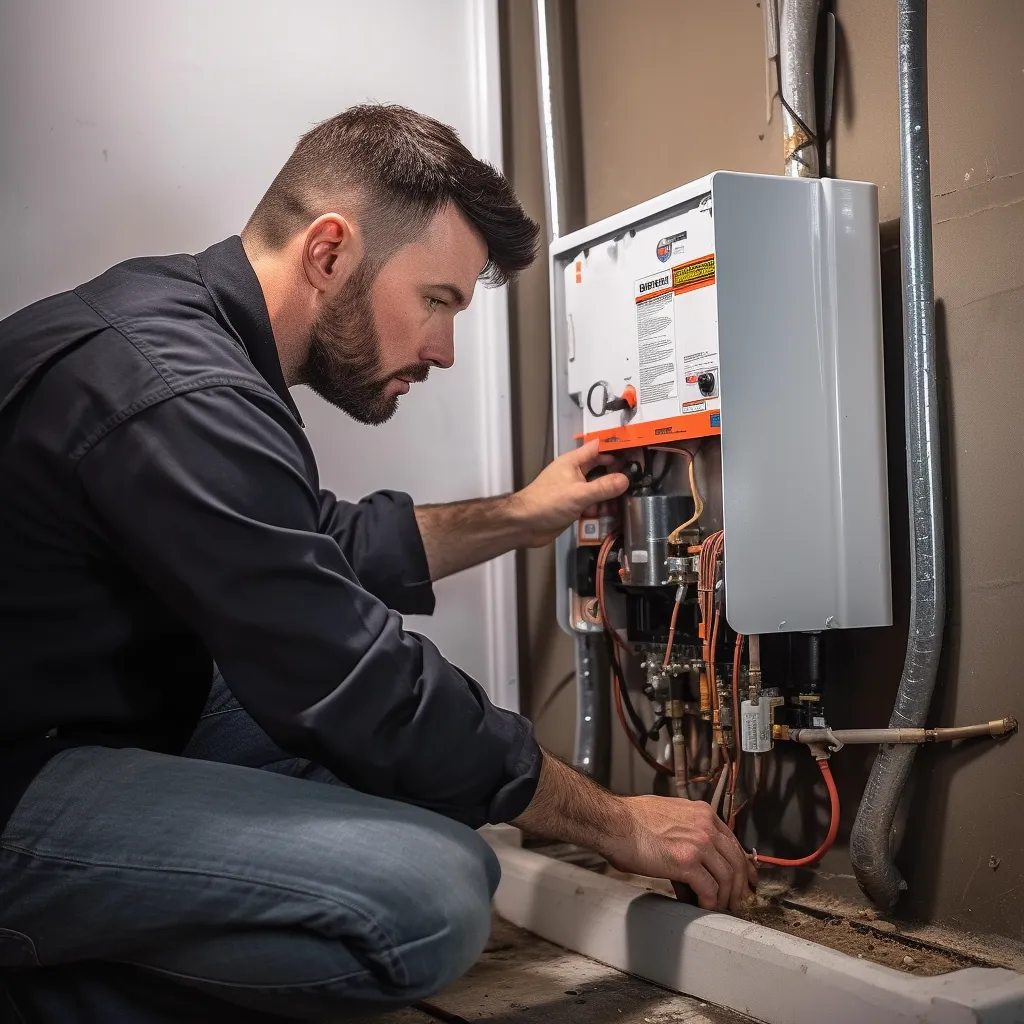
Address
any malfunctions
To ensure optimal performance and longevity of your water heater, it is crucial to promptly address any malfunctions that may arise. If you notice issues such as insufficient hot water or unusual noises emanating from the unit, it is indicative of underlying problems. It is highly recommended to reach out to a specialist who can provide timely repairs. By taking proactive measures and rectifying any issues promptly, you not only extend the lifespan of your water heater but also make significant cost savings in the long run.
Signs it's time to get a new water heater
Water heaters, much like any mechanical device, have a limited lifespan, and this holds true for the water heater in your home. If you come across specific warning signs, it's likely an indication that it's time to consider replacing it:
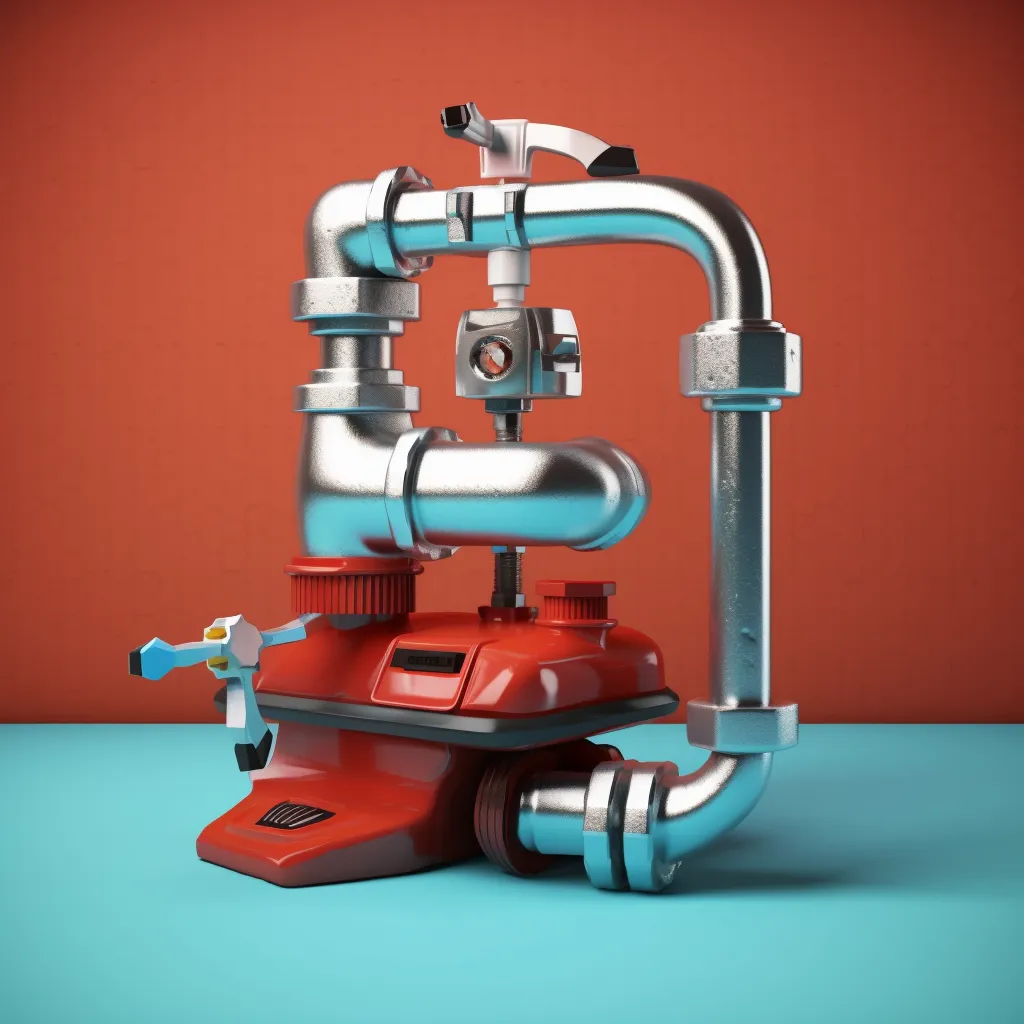
If your water heater has been in service for more than 10 years, it's worth contemplating a replacement. The average lifespan of most water heaters ranges from 10 to 15 years.
Unusual sounds such as popping or gurgling emanating from your water heater are clear indications that a new tank is required.
Should you notice water gathering around the base of the water heater, it's crucial to address the issue promptly, as it could be a sign of a leak that demands attention.
Frequent disruptions in hot water supply or inconsistent heating can suggest that your water heater is no longer operating efficiently and may necessitate replacement.
A malfunctioning water heater can result in increased energy consumption and higher utility bills. If you observe a sudden surge in your energy costs, it's worth considering the installation of a new water heater.
When you find yourself repeatedly calling for repairs on your water heater, it may prove more cost-effective in the long run to invest in a new and reliable unit.
The presence of rust or corrosion on or around the water heater can serve as a clear indication that it is no longer functioning optimally and may require replacement.
Unusual taste or odor in your hot water can indicate a problem with the water heater. It is advisable to consider replacing it to ensure the provision of safe and clean hot water.
If your water heater consistently fails to deliver sufficient hot water to meet the needs of your household, it is a strong indicator that it is time for a replacement.
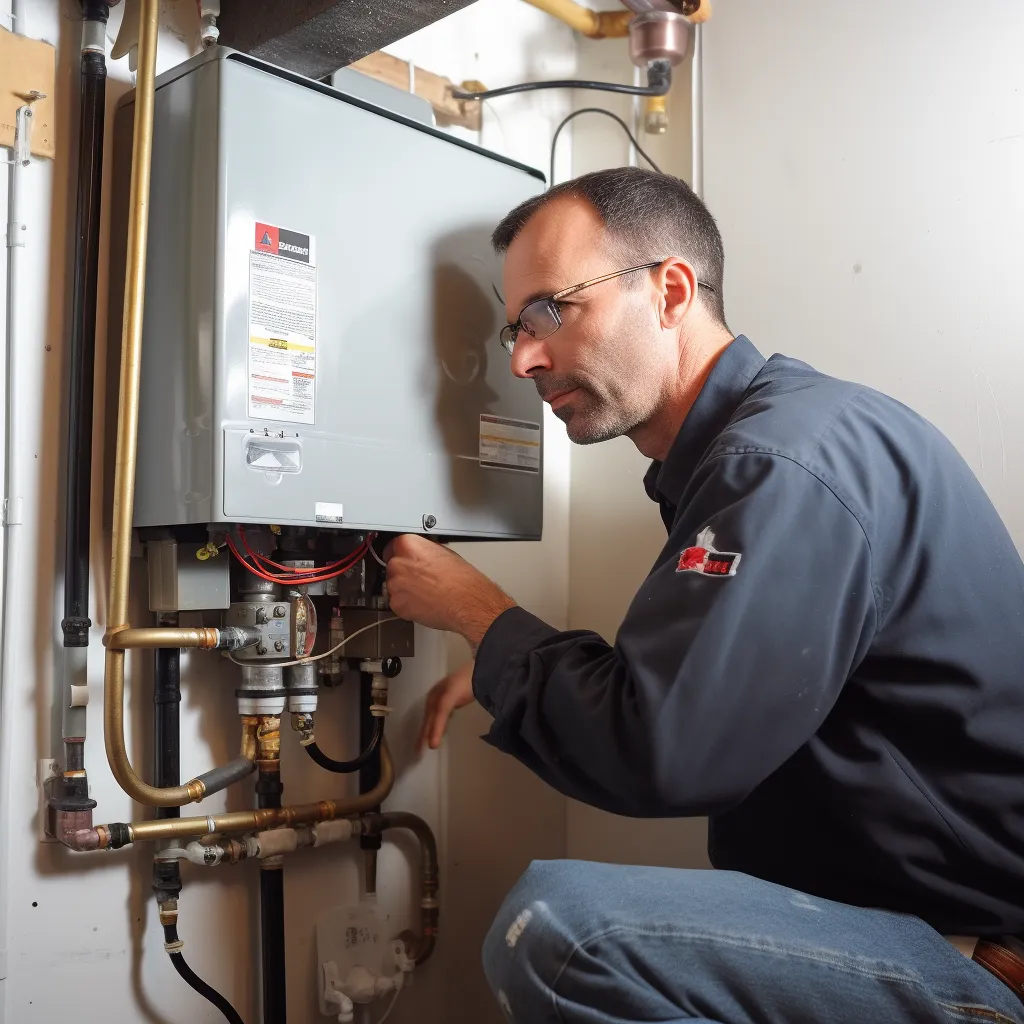
By paying attention to these warning signs, you can make an informed decision about replacing your water heater and ensure a reliable supply of hot water for your home.
What is the cost of replacing
a water heater?
When determining the cost of replacing a water heater, there are several key factors that play a role in determining the overall price. Here are some of the factors that play into the cost of water heater replacement:
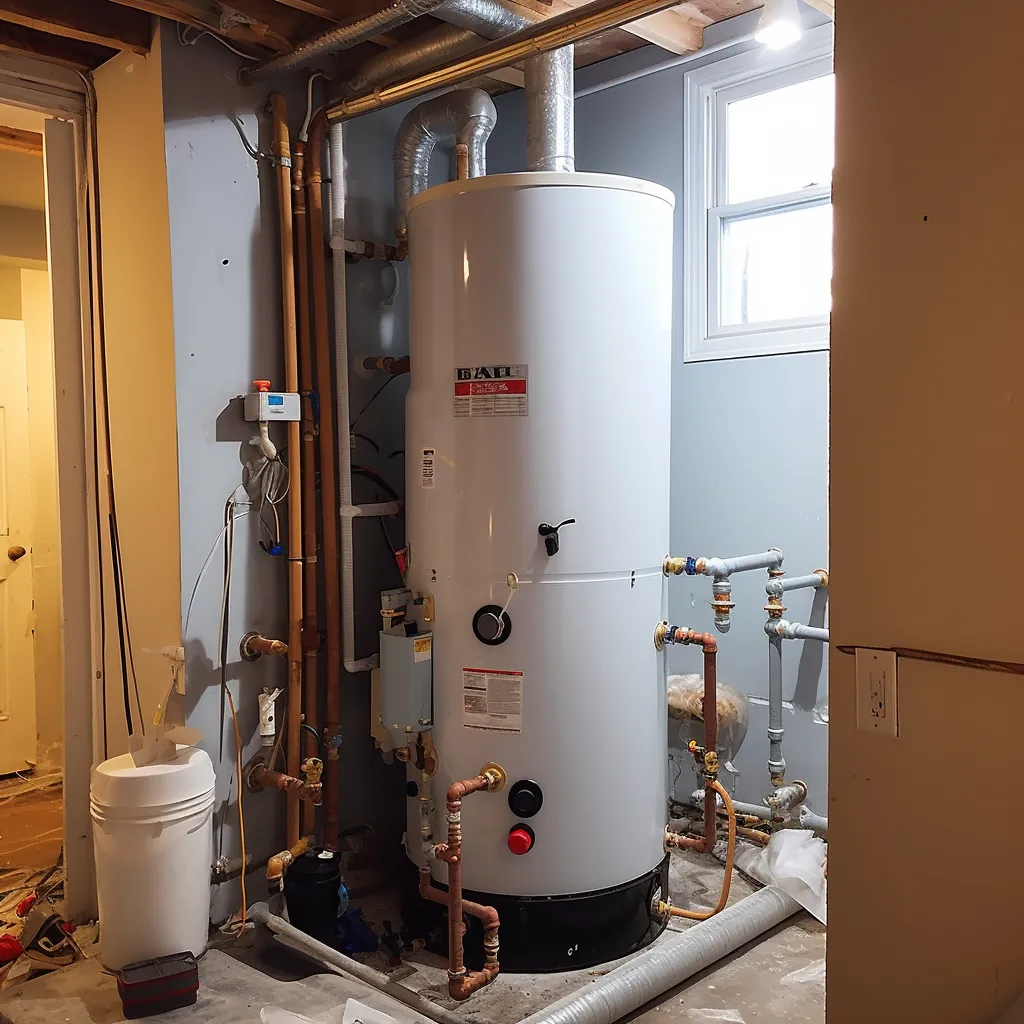
Type and Size: The choice of water heater, whether it's a conventional tank-based system or a tankless unit, will have an impact on the cost. Moreover, the size or capacity of the water heater necessary to meet the hot water demands of your household will also influence the price.
Energy Efficiency: Opting for an energy-efficient water heater typically involves a higher initial cost, but it can yield long-term savings on energy bills. Although investing in a more efficient model may require a greater upfront expense, it can prove to be cost-effective in the long run.
Installation Requirements: The complexity of the installation process can affect the overall cost of replacing a water heater. Factors such as the accessibility of the installation site, venting requirements, and any necessary plumbing modifications can contribute to the expenses incurred during the installation phase.
When it comes to replacing a water heater, there is a considerable financial commitment involved, with costs that can fluctuate based on various factors. For conventional electric water heaters, the replacement expenses usually fall within the range of $500 to $2,500. However, repairing tankless water heaters tends to be more expensive, with costs ranging from $1,000 to $3,500. Given the significant investment required for water heater replacement, it's essential to consider the long-term advantages. Choosing a top-notch unit can result in lower utility bills and enhanced energy efficiency, making it a valuable long-term investment.
Common frequently asked questions about replacing and installing a water heater
When it comes to water heater replacement and installation, there are several frequently asked questions that can provide valuable guidance. Here are a few of them:
What size water heater do I need?
How long does the installation process typically take?
Which fuel source is recommended for my water heater?
What is the estimated cost of the replacement?
Is professional assistance necessary for the installation?
When considering water heater replacement or installation, it's essential to prioritize your specific requirements. To ensure dependable advice, consulting licensed plumbers is vital. They possess the expertise to assist you in choosing the right size and type of water heater that perfectly suits your residence. Moreover, they can offer you an estimate of the installation expenses and identify any supplementary tasks that might be necessary. Trusting professional plumbers guarantees a seamless and tailored water heater solution tailored to your needs.
How you can save money
when replacing a hot water heater
Replacing a hot water heater can be an affordable task if you follow these money-saving tips:
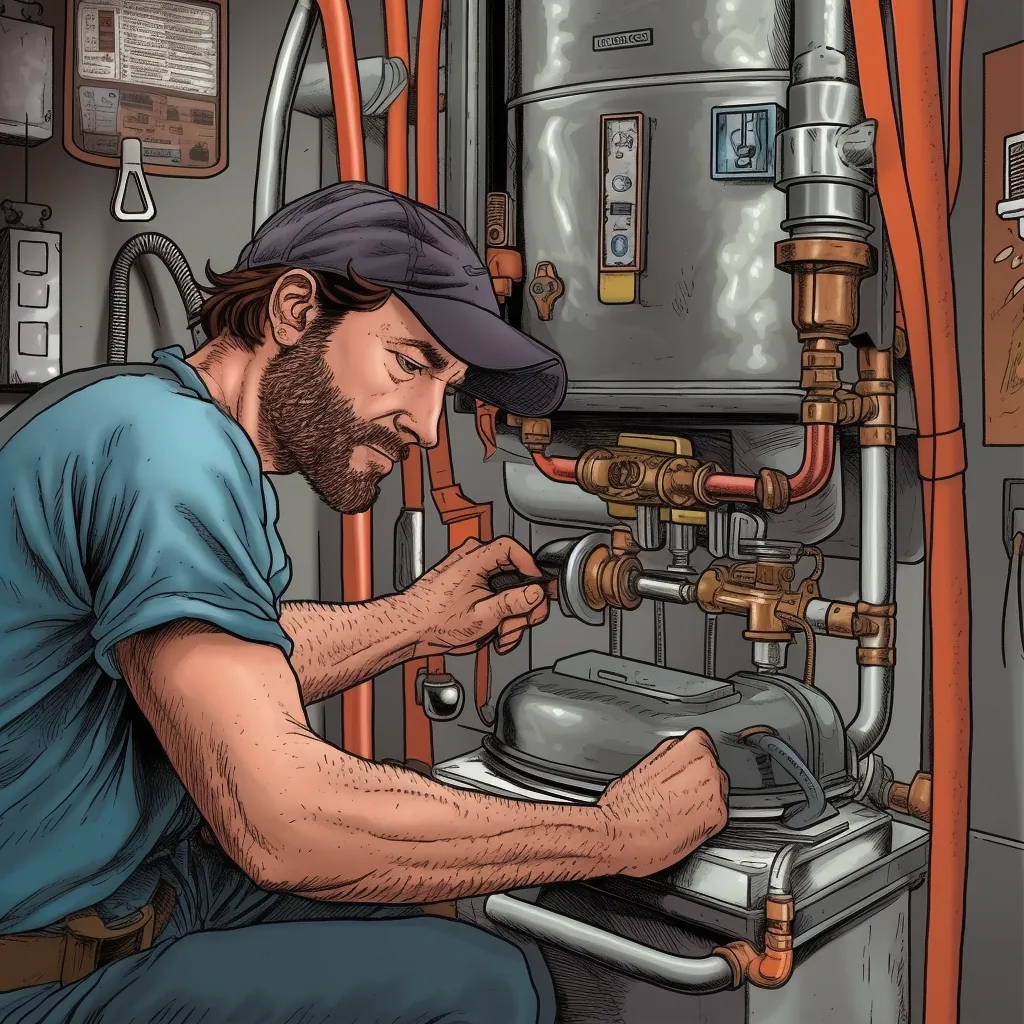
Research thoroughly to find the ideal replacement option for your home, considering both standard electric models and tankless systems based on your needs and preferences.
When selecting a water heater, prioritize energy efficiency to save costs in the long run. Look for models that consume less energy and have a high Energy Factor (EF) rating. This will help reduce your monthly utility bills and provide ongoing savings.
To ensure you get the best deal, take the time to shop around and compare prices from different retailers and suppliers.
Check if your state offers any rebates or incentives for purchasing energy-efficient water heaters. These incentives can further reduce the overall cost of your replacement.
Although tankless water heaters may come with a higher upfront cost, they offer significant energy savings over time. Consider the long-term benefits of reduced energy consumption when making your decision.
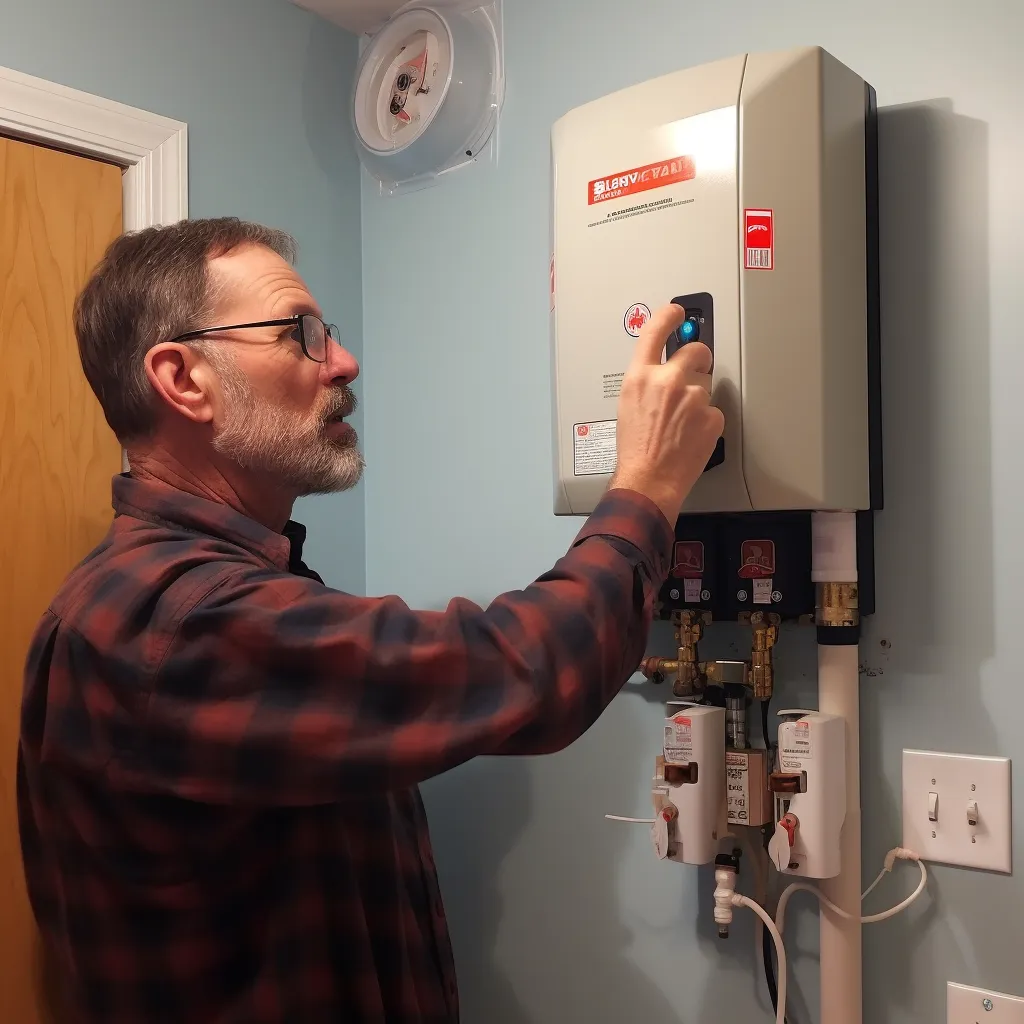
Why you should hire a professional
vs DIY installation
of a water heater
Replacing an old hot water heater may appear as a cost-saving measure at first glance. However, it's crucial to understand that this task can be intricate. Although you might be tempted to handle the installation yourself, it demands specific skills and expertise that professionals possess. Regardless of your choice, opting for professional installation can result in substantial long-term savings. Professionals are equipped with the knowledge to ensure a correct installation, adhering to all necessary codes and regulations. Additionally, professional installations often come with warranties, providing you with added peace of mind and a hassle-free experience. Conversely, while a DIY approach may seem appealing, it is not recommended. Undertaking the installation yourself increases the likelihood of errors, which can subsequently lead to additional expenses such as repairs or heightened energy consumption.

Tips on finding a water heater professional for installation
When searching for a licensed professional to handle your water heater installation, it is crucial to keep the following factors in mind:
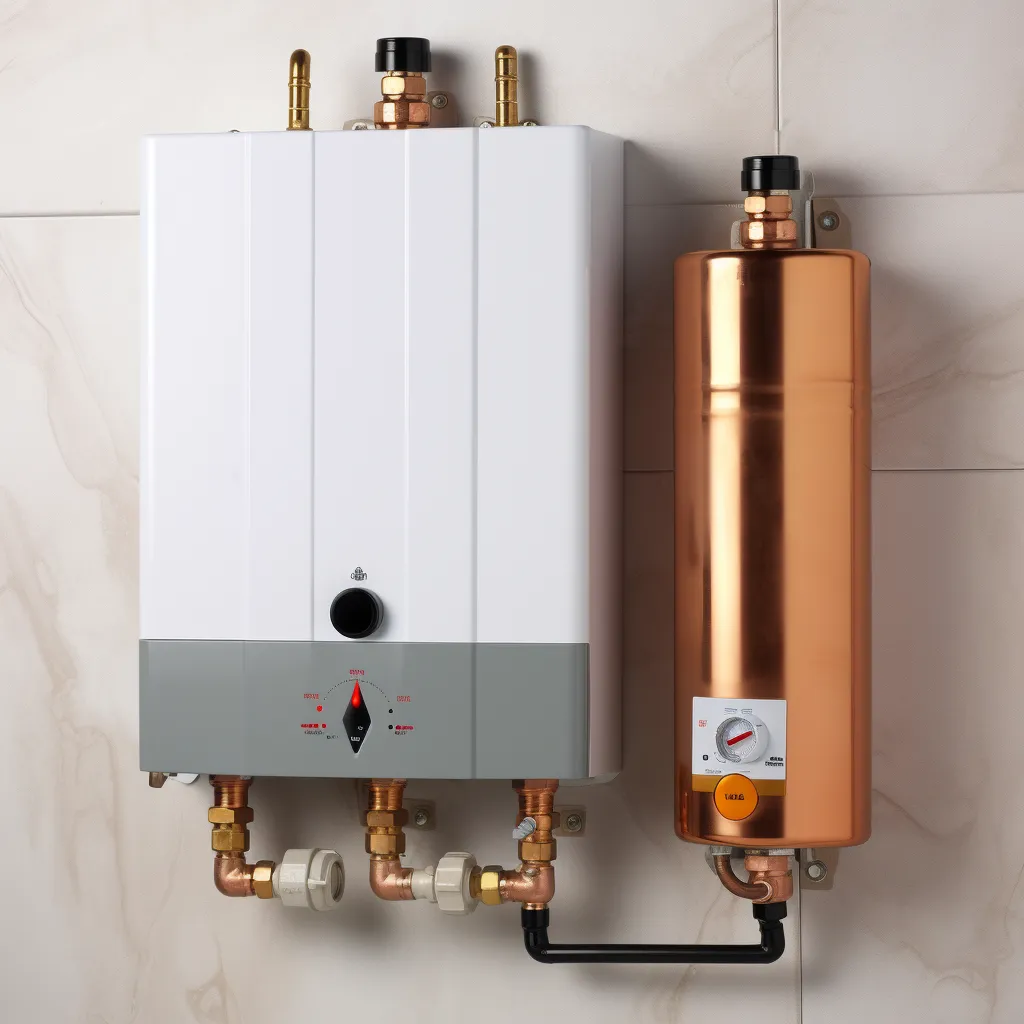
Credentials and Licensing: Prioritize candidates who possess the necessary credentials and hold a valid license for water heater installation.
Experience and Expertise: Consider the professional's experience and expertise in water heater installation to ensure they have the necessary skills and knowledge to handle the job effectively.
Reputation: Take the time to read reviews and gather feedback from previous clients. This will provide valuable insights into the professional's reputation and the quality of their work.
Insurance Coverage: Verify that the professional has adequate insurance coverage. This will help protect you from any potential liabilities or damages that may occur during the installation process.
Cost Estimates: Obtain detailed cost estimates from multiple professionals to compare prices and services. This will assist you in making an informed decision based on your budget and specific requirements.
Warranties or Guarantees: Inquire about any warranties or guarantees offered by the professional. This will give you peace of mind knowing that you are protected in case of any issues or malfunctions after the installation.
Permits and Compliance: Confirm that the professional will handle any necessary permits and comply with local regulations. This ensures that the installation is conducted in accordance with the applicable laws and standards.
Effective Communication: Choose a professional who communicates effectively and transparently. Clear communication is essential for understanding the installation process, addressing any concerns, and maintaining a smooth working relationship.
Contact Us
GET IN FULL TOUCH
PHONE:+(702) 935-6990
EMAIL:
stephen@waterheaterlasvegas.com
Las Vegas, NV 89183
